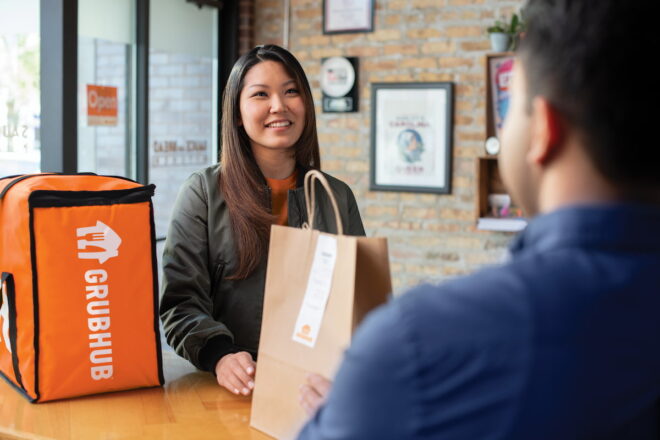How to make the 2020 Holiday Calendar work for you
Editorial Team
7 min read
We’ve all grown used to the holiday shopping rhythm. First comes Spooky Season, topped off by Halloween. Come November 1st, it’s time to ramp up for the holiday season. Black Friday and Cyber Monday bring an influx of sales with their deep discounts, officially bringing spending into full swing. This year of course, we can expect the holiday season, like so many other things, to be different.
Due to social distancing measures, Halloween is expected to be much more subdued than in previous years. Combine a more muted Halloween with a mid-October Prime Day, and you have a recipe for an unusually early start to holiday shopping. Amazon has typically held its annual discount days during the summer, but due to supply chain issues, Prime Day was pushed back until October 13-14 this year. Because of its structural similarities to Black Friday and Amazon’s enormous reach, Prime Day has acted as the unofficial start to the holiday season this year. Bottom line? Holiday shopping has already begun. So what can your business do to make the most of the holidays this year?
2020 holiday calendar
The first step towards a successful season is to understand the 2020 holiday calendar so your business can adequately prepare and market to take full advantage of each event.
- Halloween, October 31
- Veterans Day, November 11
- Thanksgiving, November 26
- Black Friday, November 27
- Small Business Saturday, November 28
- Cyber Monday, November 30
- Giving Tuesday, December 1
- Green Monday, December 14
- Free Shipping Day, December 15
- Hanukkah, December 10-18
- Christmas Eve, December 24
- Christmas Day, December 25
- Kwanzaa, December 26-January 1
- New Year’s Eve, December 31
Prioritize the top shopping holidays for 2020
Small businesses don’t have the resources (and customers likely don’t have the attention) to hit it out of the park every single retail holiday. Black Friday, for example, isn’t a big hit for luxury retailers. Knowing what doesn’t work for your specific business is just as important as knowing what does. While the success of each day will vary from business to business, there are some general rules you can follow.
Retailers and restaurants can encourage people to shop and dine, respectively, on Small Business Saturday. With the increased focus on shopping small this year, it has the potential to be a big day for independent businesses across the US.
Online shopping is predicted to take on an even more important role with the latest pandemic-driven shopping trends. Customers will be looking for experiences that maintain social distancing standards. While there are ways to optimize your in-store experience with in-and-out floor plans and providing increased help, nothing minimizes person-to-person contact like online shopping. Salesforce anticipates that up to 30% of total U.S. retail sales will be digital this holiday season.
You may want to consider participating in Cyber Monday this year, even if you haven’t in previous years. Retailers can do so by emphasizing their online shopping/e-commerce options. Restaurants can embrace Cyber Monday by encouraging patrons to use online ordering on that day. Our own Clover Online Ordering’s easy setup makes online ordering a breeze to implement and we set up and process your orders without added fees, helping you maximize profits in an uncertain economy.
If you do embrace online business, you should also plan for more last-mile shipping delays. Plan for earlier shipping cutoffs and communicate those early and often with your customers.
Novelty holidays
Novelty holidays may not be nationally celebrated, but these niche holidays may offer fun ways to generate buzz and excitement for your business in November and December.
Novelty holidays for restaurants
- November 1: National Calzone Day, National Cinnamon Day, National Deep Fried Clams Day
- November 2: National Deviled Egg Day
- November 3: National Sandwich Day
- November 4: National Candy Day
- November 5: National Doughnut Day
- November 6: National Nachos Day
- November 7: National Cappuccino Day
- November 10: National Vanilla Cupcake Day
- November 16: National Fast Food Day
- November 26: National Cake Day
- December 1: National Pie Day
- December 8: National Brownie Day
- December 30: Bacon Day
Novelty holidays for retail
- November 2: Color the World Orange Day
- November 3: National Housewife’s Day
- November 4: National Candy Day, National Stress Awareness Day
- November 5: National Cash Back Day
- November 13: World Kindness Day
- November 18: National Princess Day
- December 4: National Sock Day
- December 14: Gingerbread House Day
- December 18: National Ugly Christmas Sweater Day
How to use novelty national holidays for your small business
As you can see, there are a lot of novelty holidays. To implement these holiday celebrations successfully, the key is to be selective, and not to use them all. If you’re a restaurant that celebrates National Deviled Egg Day, Sandwich Day, Candy Day, and Doughnut Day, your patrons’ eyes will quickly glaze over your email announcements and other marketing efforts. If you choose just one or two holidays, you’re much more likely to be successful. A doughnut shop, for example, would be best served by concentrating their efforts around Doughnut Day and letting the rest fall away.
If one of these novelty national holidays coincides with one of your products or services, there is a clear opportunity to highlight the product on the day. National Sock Day, for example, is a great day to offer promotions for customers who like to buy multiple pairs of socks. You can also use these holidays to generate excitement even if it’s not directly tied to your business. On National Gingerbread House Day, for example, you can encourage customers to share photos of their gingerbread houses on social media and tag your business. You can offer a special promotion or gifts with purchase centering around self-care on National Stress Awareness Day. In 2020, when everyone is craving all the comforts we’ve lost, customers will likely appreciate any efforts taken to support wellness and holiday cheer.
Make your own holiday
Small businesses are much more nimble than big-box retailers. You have the flexibility and agility necessary to create your own special deals or discount days without a year of planning. When you create a personalized promotion for your business, it makes it feel much more intimate and special for your customers because a smaller number of people know about it. You can use this “if you know, you know” vibe to generate sales and offer something of real value to your customers.
If you’re interested in creating a specialized deal or discount day for your business, here are some helpful tips:
- Review previous years’ sales and look for days with especially high or low sales performance. What were the contributing factors in terms of timing and any promotions you offered? You can use deal days or promotions to build momentum on days that already perform well, or you can use deals/discounts to draw customers in when business tends to be slow.
- Select a date for your promotions.
- Market the day with emails, signage, and posts on your social media.
Other ways you can have a successful holiday season in 2020
- Plan for the holidays with our 2020 Retail Holiday Guide and the 2020 Holiday Restaurant Guide.
- Market on social media by decorating your channels and profiles the same way you’d decorate a window display.
- Mobile is expected to continue to drive sales. Look at optimizing your website, online ordering, and e-commerce platforms for the mobile user experience.
Knowing your way around the holiday calendar can set your restaurant or retail business up for success. While this year will be different because of an earlier start date and many pandemic-related adjustments, like increased safety measures and limited crowds, your small business can ring in big sales by emphasizing Small Business Saturday, participating in Cyber Monday, and embracing a novelty holiday that’s in line with your offerings. You can even make your own deal/promotion day. This year, the holidays are all about entrepreneurial creativity.
Related Posts
Independent restaurants can streamline operations of online orders through new Clover and Grubhub integration
August promo calendar: Holding on to summer fun
Popular Topics
Stay in touch
Sign up and learn more about Clover.
Thank you for your subscription!
More posts about starting a small business
eBook





